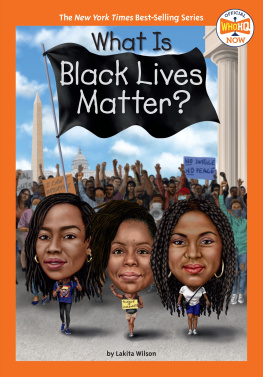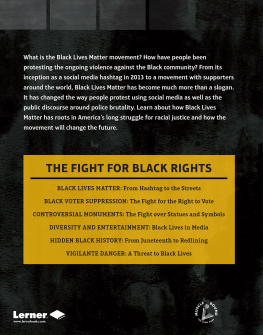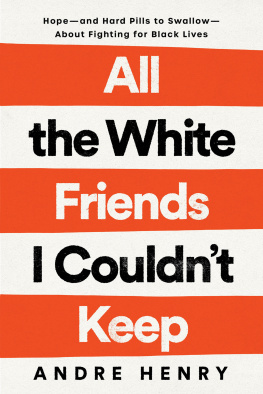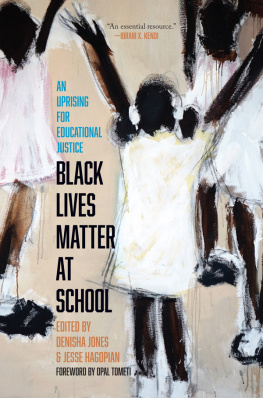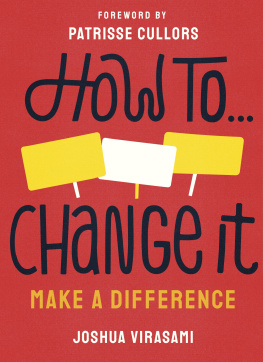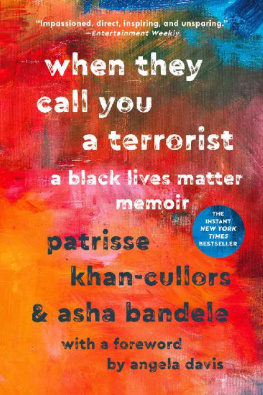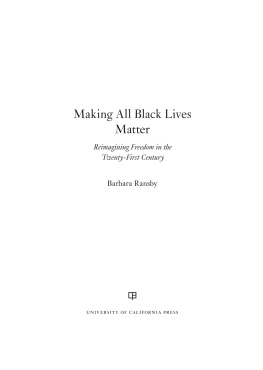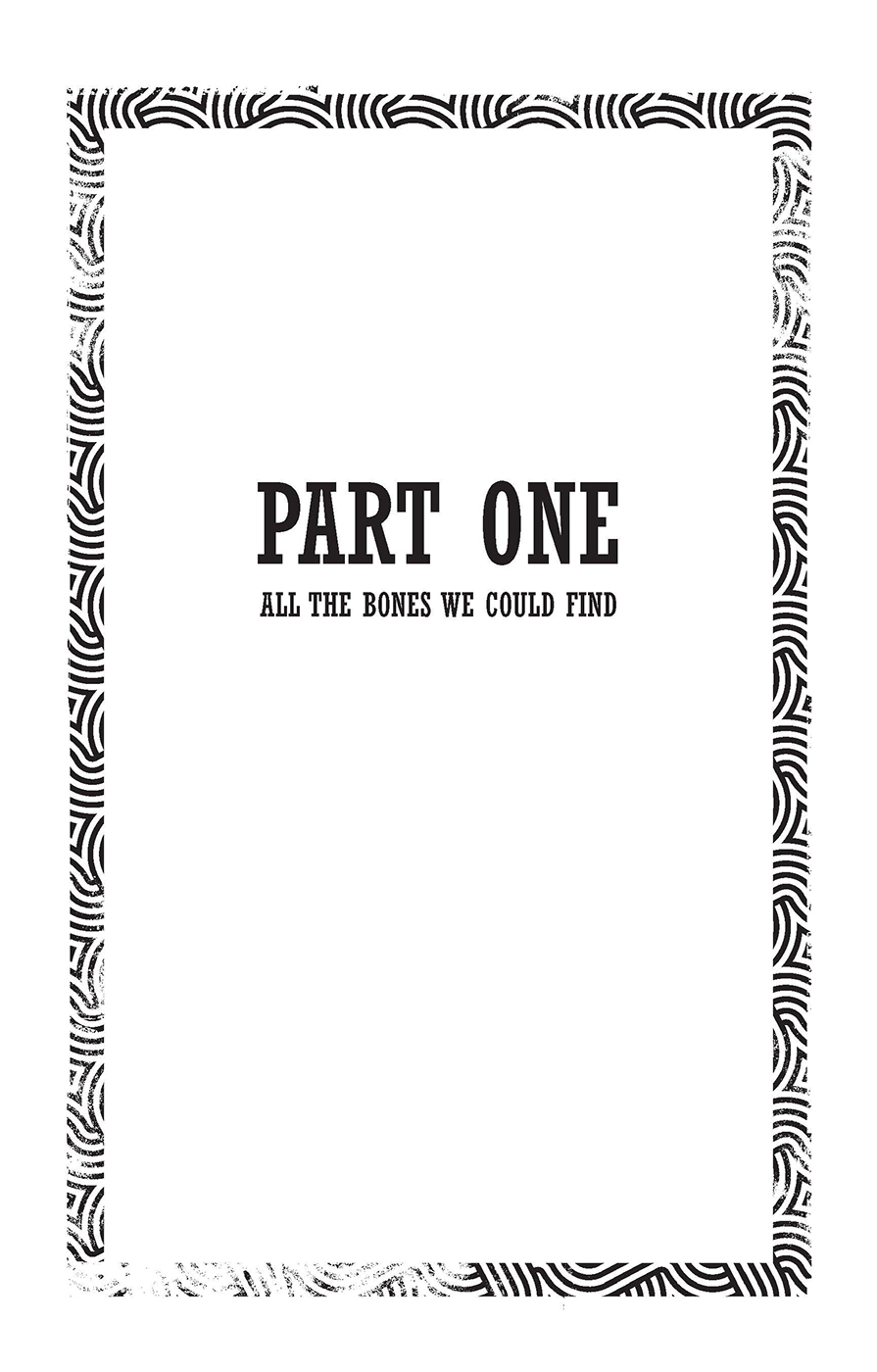Published in Great Britain in 2018 by Canongate Books Ltd, 14 High Street, Edinburgh EH1 1TE
canongate.co.uk
This digital edition first published in 2018 by Canongate Books
Copyright Patrisse Khan-Cullors and asha bandele, 2017
Foreword copyright Angela Davis, 2017
First published in the United States in 2018 by St Martins Press
The moral right of the author has been asserted
British Library Cataloguing-in-Publication Data
A catalogue record for this book is available on request from the British Library
ISBN 978 1 78689 302 4
Export ISBN 978 1 78689 303 1
For my ancestors, and for my mother, Cherice Simpson; my fathers, Gabriel Brignac and Alton Cullors; for all my siblings; and for my new family, Janaya Khan and Shine Khan-Cullors, this book is from you and for you. Thank you for holding me down and reminding me why I am able to heal.
PATRISSE
For Nisa and for Aundre and for all of our children, the ones who survive, the ones who do not.
And for Victoria, who deserves the sun, the moon, the stars and Coney Island. And Victoria, who first believed, who has always believed.
asha
And for the movement that gives us hope, and the families in whose names we serve, we will not stop pushing for a world in which we can raise all of our children in peace and with dignity.
PATRISSE AND asha
contents
It is our duty to fight for our freedom.
It is our duty to win.
We must love each other and support each other.
We have nothing to lose but our chains.
ASSATA SHAKUR
foreword
BY ANGELA DAVIS
When I first met Patrisse Khan-Cullors, I could not have predicted that within a short period of time she, along with Alicia Garza and Opal Tometi, would become the face of a movement that, under the rubric of Black Lives Matter, would rapidly reverberate throughout the world. But I could clearly see that Patrisse and her comrades were pushing Black and left, including feminist and queer, movements to a new and more exciting level, as they seriously wrestled with contradictions that had plagued these movements for many generations.
In this memoir, Patrisse generously shares the intimacies of her life and loves, and her unyielding devotion to the cause of freedom. The stories she tells here with asha bandele help us to understand why her approach to organizing and movement building has captured the imaginations of so many. Her story emphasizes the productive intersection of personalexperiences and political resistance. The pivotal story of her brothers repeated encounters with violence-prone police officers, for example, permits us to better understand how state violence thrives at the intersection of race and disability. That MontePatrisses brotheris shot with rubber bullets and charged with terrorism as a routine police response to a manic episode reveals how readily the charge of terrorism is deployed within white supremacist institutions. We learn not only about the quotidian nature of state violence but also about how art and activism can transform such tragic confrontations into catalysts for greater collective consciousness and more effective resistance.
When They Call You a Terrorist thus illuminates a life deeply informed by race, class, gender, sexuality, disability, and religion, at the same time as it highlights the art, poetry, and indeed also the struggles, such a life can produce. But, of course, it is not only Patrisses brother who is called a terrorist. It is Patrisse herself, and her co-workers and comradesincluding Alicia, Opal, and the other organizers and activists affiliated with the Black Lives Matter network and movementwhose commitments and achievements are maligned with the label of terrorism. No white supremacist purveyor of violence has ever, to my knowledge, been labeled a terrorist by the state. Neither the slayers of Emmett Till nor the Ku Klux Klan bombers who extinguished the lives of Carole Robertson, Cynthia Wesley, Denise McNair, and Addie Mae Collins before they could emerge from girl-hood were ever charged with terrorism or officially referred to as terrorists. But in the 1970s, President Richard Nixoninstinctively hurled that label at me, and in 2013 Assata Shakur was designated by the FBI as one of the worlds ten most dangerous terrorists.
There are many lessons to be gleaned from Patrisses memoir, not the least of which have to do with political rhetoric. The very title, When They Call You a Terrorist, asks the reader to engage critically with the rhetoric of terrorismnot only, for example, the way in which it has occasioned and justified a global surge in Islamaphobia, and how it has impeded thoughtful reflection on the continued occupation of Palestine, but also how this rhetoric attempts to discredit anti-racist movements in the United States. At the same time, racist, misogynist, and transphobic eruptions of violence continue to be normalized. The seemingly simple phrase Black Lives Matter has disrupted undisputed assumptions about the logic of equality, justice, and human freedom in the United States and all over the world. It has encouraged us to question the capacity of logicWestern logicto undo the forces of history, especially the history of colonialism and slavery. This logic expresses itself through our philosophical certainties and ideological presuppositions and in our legal system, which, for example, allows for the incarceration of disproportionate numbers of black people, immigrants from the Global South, and people of recent immigrant ancestry, justifying the structural racism of such practices with references to due process and other ostensible legal guarantees of equality.
Patrisse Khan-Cullors and her comrades within the Movement for Black Lives, which embraces many moreorganizationsincluding the Black Youth Project 100 and the Dream Defenders in Floridaare helping to produce forward-looking movement approaches that represent the best possibilities for the future of our planet. They call for an inclusiveness that does not sacrifice particularity. They recognize that universal freedom is an ideal best represented not by those who are already at the pinnacle of racial, gender, and class hierarchies but rather by those whose lives are most defined by conditions of unfreedom and by ongoing struggles to extricate themselves from those conditions. This recognition and the vast power of love are at the core of Patrisses powerful memoir.
introduction
WE ARE STARDUST
I write to keep in contact with our ancestors and to spread truth to people.
SONIA SANCHEZ
Days after the elections of 2016, asha sent me a link to a talk by astrophysicist Neil deGrasse Tyson. We have to have hope, she says to me across 3,000 miles, she in Brooklyn, me in Los Angeles. We listen together as Dr. deGrasse Tyson explains that the very atoms and molecules in our bodies are traceable to the crucibles in the centers of stars that once upon a time exploded into gas clouds. And those gas clouds formed other stars and those stars possessed the divine-right mix of properties needed to create not only planets, including our own, but also people, including us, me and her. He is saying that not only are we in the universe,but that the universe is in us. He is saying that we, human beings, are literally made out of stardust.


